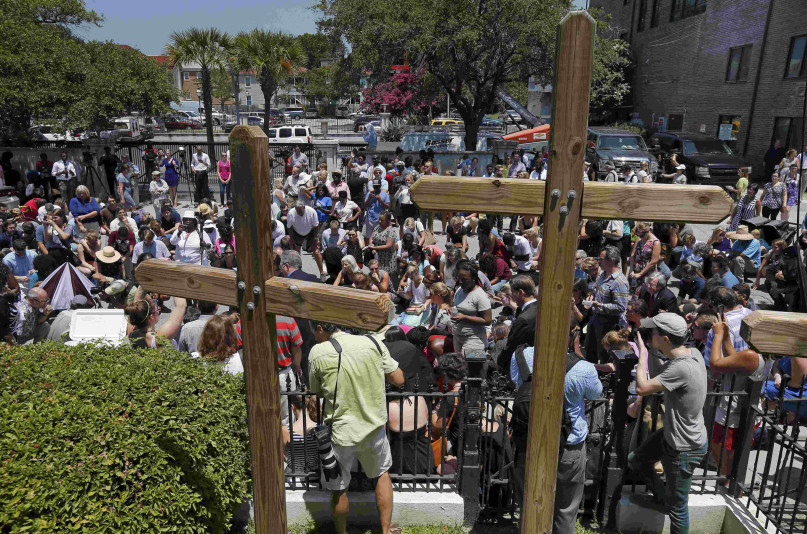The U.S. Justice Department announced today that it is charging Dylann Roof for the murder of nine people at an historic AME church in Charleston, South Carolina church. If convicted, Roof could receive the death penalty for hate crime, obstruction of religion, and firearms offenses.
But what does it mean to commit a hate crime or obstruction of religion?
The term “hate crime” is a somewhat of a misnomer. Many crimes are driven by hate. A better term is “bias crime.” The distinguishing feature of a hate crime or bias crime is that the act is based on the perpetrator’s bias against a race, religion, or other group. A hate crime deprives someone of their life, liberty, or property based on who they are, and it often has the intent of intimidating others who look, act, or believe like the victim.
Here’s a few pieces of evidence that might justify a hate crime:
- The location is a church of important historical significance in the black community of Charleston (and the rest of the country).
- The victims were shot while participating in an activity related to their race and religion.
- All of the victims were black. The shooter is white.
- According to reports, Dylann Roof had a Facebook picture in which he is wearing a coat with the flag of apartheid-era Rhodesia, now Zimbabwe. Another photo shows Roof with a car with a “Confederate States of America” license plate.
- Roof reportedly also used language that showed that he was shooting the victims because of their race. According to reports, Roof said, “You rape our women and you’re taking over our country. And you have to go.”
- There is a public perception that the crime was aimed at victims based on their race.
The federal government also charged Roof with obstruction of religion. The obstruction of religion statute is less-known than the hate crime violation. In response to church burnings in the early 1990s, Congress made it a federal crime to either damage/destroy a house of worship or to use force to obstruct someone’s exercise of religion.
The hate crime charges will likely focus on the victims race. The location and circumstances of the shooting also make it an obstruction of religion. The victims were killed in their church at the close of a prayer service. The victims included leaders in the church as well. Because people died during the obstruction of religion, Roof may receive the death penalty.
Roof is not charged with terrorism. In our everyday language, the difference between a hate crime and terrorism is one of degree, not kind. The murder of nine people seems too big to label as a crime. It’s terrorism. Legally, however, hate crimes and terrorism differ in their intent. There can be small acts of terrorism and large, heinous acts that are hate crimes.
We often use terrorism to describe horrendous acts of violence that are committed on a larger scale than other crimes, but this isn’t the legal definition. Terrorism is a political crime against a government or the population. The Federal Bureau of Investigation (FBI) defines terrorism as “the unlawful use of force or violence against persons or property to intimidate or coerce a government, the civilian population, or any segment thereof, in furtherance of political or social objectives.”
Saying that the shooting is not an act of terrorism does not diminish the tragedy. Nine people were murdered. The federal charges mean that in addition to murder, Roof is charged with to attack the civil rights and the freedom of religion of his victims (and others, too). If convicted, Roof could receive life in prison or the death penalty as punishment.
This blog post includes material from an earlier post on the shooting.
Don’t miss any more posts from the Corner of Church & State. Click the red subscribe button in the right hand column. Follow @TobinGrant on Twitter and on the Corner of Church & State Facebook page.





